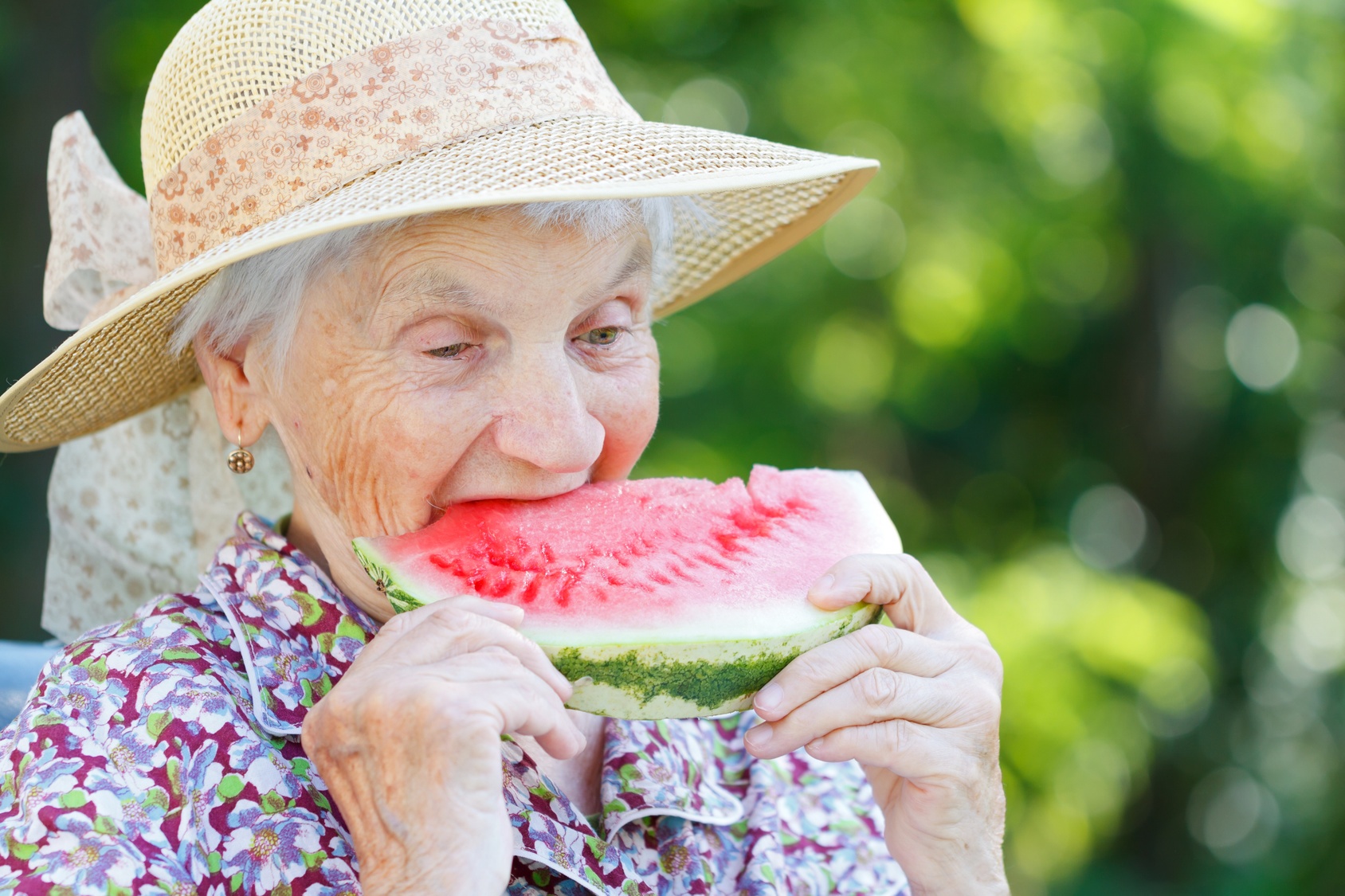
Many claims circulate on the internet and on social media platforms about so-called "superfoods" that people can eat to extend their vitality, improve their memory and avoid chronic diseases.
Frankly, many of them are just that: claims. Often, they're unsubstantiated or, worse, sensationalized by unethical clickbait content producers.
And that can be dangerous to seniors, because some might forego qualified medical advice or treatment to try out the "miracle cures" they're often promised online.
The best bet for ensuring you'll have a healthy brain later in life is to stay physically and mentally active, avoid overeating and maintain a healthy body weight throughout your adulthood. Doing so reduces your risk of developing all sorts of nasty conditions: heart disease, Alzheimer's dementia, certain cancers and more.
That said, there is some evidence that certain nutrients do protect cognitive function by helping the body to fortify itself against damage, or that provide an unusually dense concentration of nutrients that are known to be important for maintaining the brain's normal functions.
Today, let's talk about 3 of those "superfood" nutrients, stick to the facts and debunk some of the wild claims.
1. Omega-3 fatty acids
There is solid evidence that the brain requires dietarily-derived omega-3 fatty acids — found in fish, nuts, unsaturated vegetable oils, flaxseed and leafy vegetables — to maintain its normal functions.
In lab rodents, omega-3s appear to be involved in regulating synapses (the connections between brain cells; essentially, the brain's "wiring") and in promoting neuroplasticity (the brain's ability to adapt and learn over time). Lab rodents given a diet deficient in omega-3s typically exhibit cognitive impairment.
It's likely omega-3s are similarly important for human brains. Dietary deficiency of omega-3 fatty acids in humans has been associated with increased risk of dementia and with several mental illnesses, including depression, bipolar disorder and schizophrenia.
People who regularly include those aforementioned foods in their diet probably get enough omega-3s and don't need to supplement.
But, people who stick to a meat-and-potatoes diet should consider adding omega-3s to their diet. Before you do, consult a licensed nutritionist or your doctor.
2. B vitamins
Less solid, but intriguing, have been some preliminary observations that indicate people whose diets are deficient in B vitamins (in particular, vitamin B12) may exhibit poorer memory performance.
Although several studies have yielded conflicting findings on whether or not B vitamin supplementation improves memory, there's strong evidence that B vitamin deficiency can be detrimental to your neurological health.
Like omega-3 fatty acids, vitamin B12 must be dietarily derived — our bodies cannot synthesize it on their own. It's found in beef, poultry, fish and dairy foods.
Most people have no problem getting enough B12 in the course of their normal diets. People who strictly adhere to a vegan or vegetarian diet for extended periods of time, though, may need to take B12 vitamin supplements.
Folate, also known as vitamin B9, and vitamin B6 may play important roles in promoting memory and cognitive health, too.
They, along with vitamin B12, may help to regulate homocysteine levels in the blood. Some research has indicated that elevated serum homocysteine levels may be associated with an increased risk of developing Alzheimer's dementia.
We should caution you here: such findings are far from conclusive and don't amount to identification of a "smoking gun" cause of Alzheimer's, but it is nonetheless an intriguing finding, and ensuring that you get the recommended daily intake of B vitamins is probably a wise move anyway.
3. Antioxidants
If you remember your college chemistry, you might remember what free radicals are — strongly electronegative ions that can disrupt the structure of nearby molecules by "oxidizing" (yanking atoms away from) them.
When they disrupt our DNA molecules, free radicals cause genetic damage that can lead to the development of many diseases, including some cancers and (possibly) dementia-like disorders.
Our bodies will incur free radical damage. It's a fact of life and may be one of the primary causes of aging. Over the course of our lives, we encounter billions, if not trillions, of environmental free radicals; they occur in nature (although UV sunlight and many industrial pollutants increase ambient free radical levels).
We can, to some extent, shield ourselves from them by eating foods rich in antioxidants — positively charged molecules or ions — that free radicals will readily bond with, rendering them inert and harmless.
There are many antioxidant substances available to us in a well-balanced, vegetable- and fruit-rich diet, including vitamins C and E, selenium, beta-carotene, lycopene, lutein and others.
It's unclear whether taking antioxidant supplements could really protect your cognitive function. But "eating the rainbow" and remembering to wear a hat and appropriate sunscreen when outdoors are best practices to ensure your body (and your brain) stays somewhat protected from oxidation damage.
Protect your brain. Eat right and maintain an active, healthy lifestyle.
Again, there are no miracle cures or surefire preventatives out there that will ensure you never suffer from Alzheimer's dementia or age-related memory loss.
It's widely accepted that maintaining an active lifestyle, eating right and regularly exercising are your best bets for postponing or preventing cognitive decline.
But it can't hurt to hedge your bets by making sure that you get enough dietary intake of the nutrients above — ideally, through a well-balanced diet, rather than by vitamin supplements (which typically aren't well-absorbed by the body).
Do you have questions about proper senior nutrition, or about nutrition's potential role in preventing age-related memory loss or Alzheimer's? Our senior care and memory care experts here at Deupree House are ready to help.
Read and subscribe to our Deupree House blog here. We'll keep you up-to-date with informative articles about senior health and wellness, senior-friendly events in and around Cincinnati, news from our retirement community, senior care issues, positive aging and more.
And, if you or your family member needs additional help, we're always here. Contact us!












